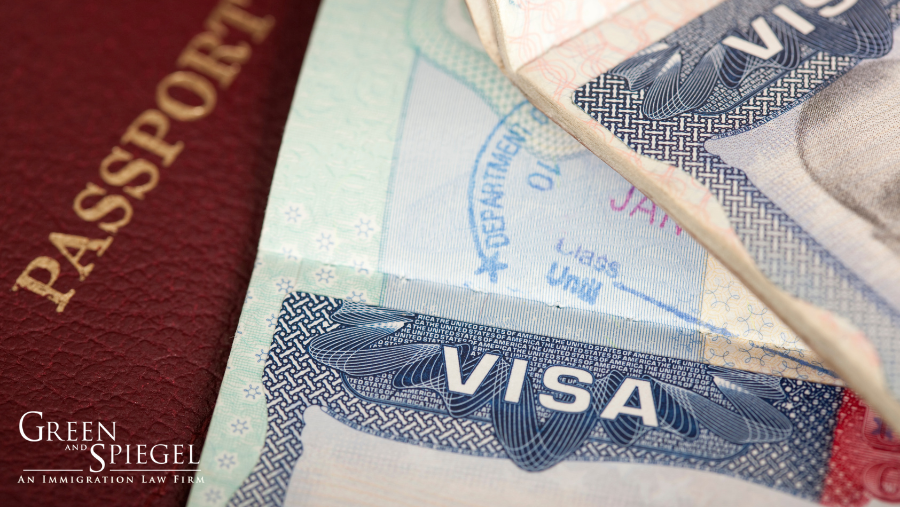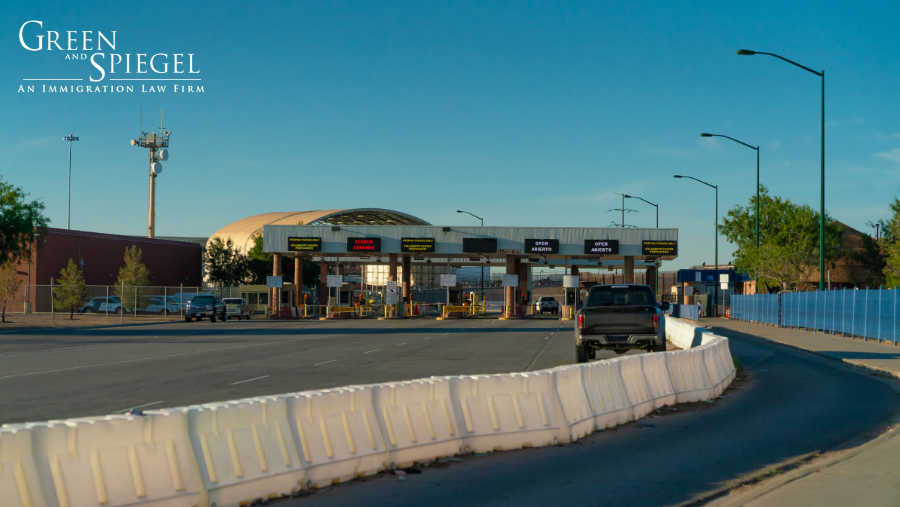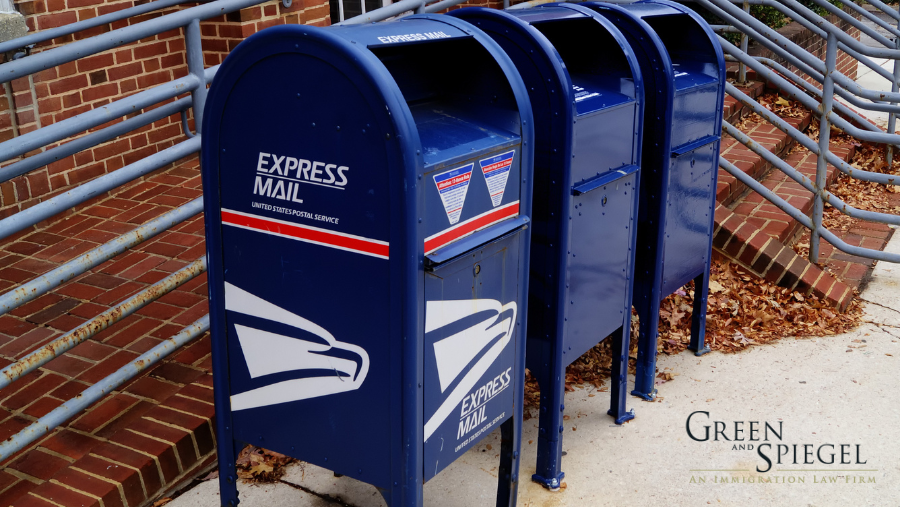Takeaways:
- Foreign national employees of U.S. companies struggle to return to their employment because of Trump Administration travel restrictions.
- There are exemptions written into those restrictions but they have been difficult to access with closed consulates and embassies and a lack of guidance.
- The U.S. Department of State (DOS) has begun issuing visas and consular services are becoming more available.
- August 12, 2020 guidance lays out approaches to getting exemptions to travel restrictions through U.S. consulates and embassies and may help people apply for exemptions through the U.S. Department of Homeland Security (DHS).
- Carefully framed requests for these exemptions is a remedy for some foreign workers seeking to work for U.S. employers.
Overview:
The 2019 coronavirus (“COVID-19”) led to quarantines and travel restrictions which impact foreign national employees and their U.S. employers. Many employees are stranded oversees due to the suspension of routine visa services and travel bans. Additionally, the Administration enacted a Proclamation Suspending Entry of Aliens Who Present a Risk to the U.S. Labor Market Following the Coronavirus Outbreak (“Economic Executive Order”), intended to promote employment of U.S. persons over the employment of foreign nationals.
Both the travel bans and the Economic Executive Order contain “national interest exemptions” but neither contain practical tips for requesting them. Fortunately, on August 12, 2020, the DOS published national interest exemptions (“NIE Waiver”) guidance. Though there are no comparable DHS instructions, the guidance helps those requesting NIE Waivers of the Economic Executive Order. For other waivers, there are probably ways to adapt the guidance but representation may be helpful in making the request.
The June 23, 2020 Executive Order, Limiting Visa Issuance and Admission of Foreign Workers
Green and Spiegel explored the Economic Executive Order in a June 23, 2020 blog post, explaining the hurdles the Administration placed before employment-based visa holders and filers. This is in addition to the COVID-19 travel restrictions and limited consular services. It generally suspends immigrant visa issuance until next year and the admission of many nonimmigrants and their dependents.
Foreign national employees of U.S companies cannot get visas or enter the U.S. if they:
- Would use an H-1B, H-2B, L-1, and certain J-1s and are outside of the U.S. as of June 24, 2020;
- Do not have a valid nonimmigrant visa effective June 24, 2020; and
- Do not have any other valid travel document, such as an advance parole document or foil in their passport, effective June 24, 2020.
However, the Economic Executive Order left untouched:
- Individuals with H-1B/H-4, H-2B/H-4, L-1/L-2, and J-1/J-2 visas valid as of June 24, 2020;
- Those present in the U.S. in valid, nonimmigrant status as of June 24, 2020 and seeking a change to H-1B/H-4, H-2B/H-4, L-1/L-2, and J-1/J-2; or
- Those present in the U.S. in valid H-1B/H-4, H-2B/H-4, L-1/L-2, and J-1/J-2 status seeking an extension of stay, amended petition, or, as applicable, a change of employer.
As noted in Green and Spiegel’s June 23, 2020 analysis of the matter, the Economic Executive Order also left alone:
- H-2A temporary agricultural workers;
- E-1/E-2 Treaty Traders/Investors;
- E-3 Australian specialty occupation workers;
- F-1/M-1 nonimmigrant students – including those employed through Curricular Practical Training and Optional Practical Training;
- H-1B1 Singaporean/Chilean specialty occupation workers;
- I nonimmigrant international journalists;
- O nonimmigrants of extraordinary ability;
- P nonimmigrants artists, athletes, entertainers, and performers;
- TN nonimmigrant professionals under NAFTA; and
- R nonimmigrant religious workers.
Nuts & Bolts of National Interest Exceptions to the Proclamations and Economic Executive Order:
In both the Proclamations and the Economic Executive Order, there are built-in mechanisms for a waiving the exclusionary rules. For example, there are blanket exemptions, admitting U.S. citizen spouses and exemptions for foreign nationals whose presence in the U.S. advances the national interest. Our firm has facilitated a number of these NIE Waivers in the last few months but it wasn’t until August 12, 2020 that the government published general guidance. This new guidance is helpful in predicting which NIE Waiver requests will be accepted and which will be denied.
Most of the NIE Waivers of the Economic Executive Order will be sought abroad. The guidance is titled “National Interest Exceptions to Presidential Proclamations (10014 & 10052) Suspending the Entry of Immigrants and Nonimmigrants Presenting a Risk to the United States Labor Market During the Economic Recovery Following the 2019 Novel Coronavirus Outbreak” (“NIE Guidance”) and it outlines a much clearer process for H-1B, H-2B, L-1, and J-1 nonimmigrants to determine waiver eligibility. It states that foreign nationals seeking an NIE Waiver must follow the instructions of their “nearest U.S. Embassy or Consulate’s website” to obtain an emergency appointment and “provide specific details as to why they believe they may qualify…”
It is important to note that each U.S. embassy has a web portal and procedures tied to country conditions. However, the NIE Guidance provides detailed and crucial eligibility criteria for each visa category (H-1B/H-4, H-2B/H-4, L-1/L-2, and J-1/J-2) affected by the Economic Executive Order. This is significant because it sets a baseline standard for filings in embassies and consulates throughout the world.
The NIE Guidance states that the eligibility criteria it provides is a “list of the types of travel that may be considered to be in the national interest” and that Waivers “may include” such travel purposes as:
- Foreign national entering the U.S. to provide COVID-19 support such as public health services or research (H-1B, J-1, L-1A, or L-1B);
- Waiver applicants requested to come to the U.S. by a U.S. government agency (H-1B, H-2B, J-1, L-1A, or L-1B);
- Visa holders resuming their U.S. employment “in the same position with the same employer and visa classification” (H-1B, L-1A, or L-1B);
- Foreign nationals whose travel is necessary to facilitate “immediate and continued” U.S. economic recovery (H-1B or H-2B);
- Au pairs with specialized skills for caring for special needs children or which will prevent a child from becoming a public health charge or ward (J-1);
- Participants in national and state exchange programs “designed to promote U.S. national interests” if the agreement was in effect prior to the Executive Order (June 22, 2020) (J-1);
- Full-time specialized teachers (J-1);
- Foreign nationals promoting critical foreign policy objectives (J-1);
- Senior level executives and managers whose business meets critical U.S. infrastructure needs (L-1A and L-1B); and
- Dependent foreign nationals accompanying or following to join a person granted a waiver (H-4, L-2, and J-2).
The NIE Guidance contains a “non-exclusive list” of eligibility criteria and this provides some wiggle room to Requesters. Attorneys with the right experience may more easily identify legitimate claims to a NIE Waiver that were missed in the analysis. The NIE Guidance also says that the NIE Waivers are distinct from the Proclamations on Suspension of Entry as Immigrants and Nonimmigrants of Certain Additional Persons Who Pose a Risk of Transmitting Novel Coronavirus (Proclamations 9984, 9992, 9993, or 9996), the often-called “14-Day Travel Bans”), resolving the question of whether an NIE Waiver grant covers both Proclamation and Economic Executive Order travel restrictions.
It should be noted that the NIE Guidance refers to the 14-Day Travel Bans as “regional-focused Presidential Proclamations” which can be granted alongside the Economic Executive Order waivers. So, a visa holder may need both waivers but an ESTA holder coming for a business meeting would only need the Proclamation NIE Waiver.
Practical NIE Waiver Request Considerations:
COVID-19 Proclamations
The COVID-19 Proclamations were enacted at the height of the pandemic and we don’t know how long they will remain in force. As detailed above though, they contain both blanket exemptions and specific exemptions. All others are barred from traveling to the United States through the 14-Day Travel Bans. Any foreign national, not covered by the blanket exceptions and in a country covered by a Proclamation during 14 days prior to seeking to board a plane to the U.S., needs an NIE Waiver.
Here’s the basic process and some things to consider:
- Under the Proclamations, where one files is dictated by the country one is in and where one is flying. In many places, a NIE Waiver requester can file with the consulate or embassy or with the U.S. Customs and Border Protection (CBP) unit at the airport they are flying into. For example, someone living in Germany could file with DOS in Germany or with CBP in Chicago. Note that any foreign airport with CBP Preclearance operations has special rules so it is important to think through the travel arrangements.
- NIE Waiver requesters have to demonstrate their “entry would not pose a significant risk of introducing, transmitting, or spreading the virus.” COVID-19 tests are not required but may be helpful and attesting to having complied with pandemic protocols is a must.
- The government also wants to see clean copies of identity documents and visas or ESTA approvals. (It follows that any reasons one might be denied entry need to be dealt with.)
- The requester also needs to lay out a full itinerary and flight arrangements. This establishes jurisdiction over the NIE Waiver request and that the waiver is not frivolous.
- Most importantly, there needs to be a clear statement of how U.S. national interests are advanced by the foreign national’s entrance to the U.S. It is critical that the focus be on the U.S. national interest, not on the foreign national’s. Very often, these interests are aligned so this is usually a question of how we state the issues. For example, “I need to enter by Friday or I’ll lose the contract” may not be as well received as “if the contract isn’t signed by Friday, I may not be able to hire the new employees I would need for that contract.”
The Economic Executive Order
The Economic Executive Order has its own NIE Waiver considerations and procedures due to the NIE Guidance. Whereas the Proclamations hinge on the risk of introducing, transmitting, or spreading the virus, the Economic Executive Order’s purpose is to “protect unemployed Americans from the threat of competition for scarce jobs.”
This is a restrictive purpose but the NIE Guidance suggests that foreign nationals may be entitled to NIE Waivers of the Economic Executive Order, similar to the NIE Waivers granted for COVID-19. The Economic Executive Order NIE Waiver Requests should be filed at the local consulate or embassy, according to the guidance on their website. In general, Requesters will need:
- Clean copies of identity documents and visas to demonstrate admissibility. (Any reasons one might be denied entry to the U.S. need to be managed.)
- A clear itinerary and flight arrangements with a plan to quarantine for fourteen days after U.S. entry. (DOS requires a 14-day quarantine after admission to the U.S. but DHS does not.)
- Finally, there needs to be a clear statement of how U.S. national interests are advanced by the foreign national’s entry. Here, the NIE Guidance controls and every national interest claim has to fit one of the visa classification guidance points. The Economic Executive Order requests have a different focus than the Proclamation ones though because the NIE Guidance addresses employer – employee relationships and states that some adverse impacts on employers are grounds for granting an NIE Waiver.
Conclusion:
The pandemic stranded many U.S. company employees oversees due to 14-Day Travel Bans and restrictions on foreign competition to domestic labor. There are waivers built into those restrictions and recent guidance makes applying for a waiver easier. However, the process and argument of a waiver request is a subtle art which may be advanced by working with experienced counsel.
Green and Spiegel has been successful in obtaining NIE Waivers for foreign national employees and on behalf of their U.S. employers. We are monitoring this evolving situation closely and will continue to update our blog and provide E-Alerts to advise on the latest developments. As always, we strongly encourage you to reach out to our office if you have any questions regarding if or how these changes impact you and your family.





